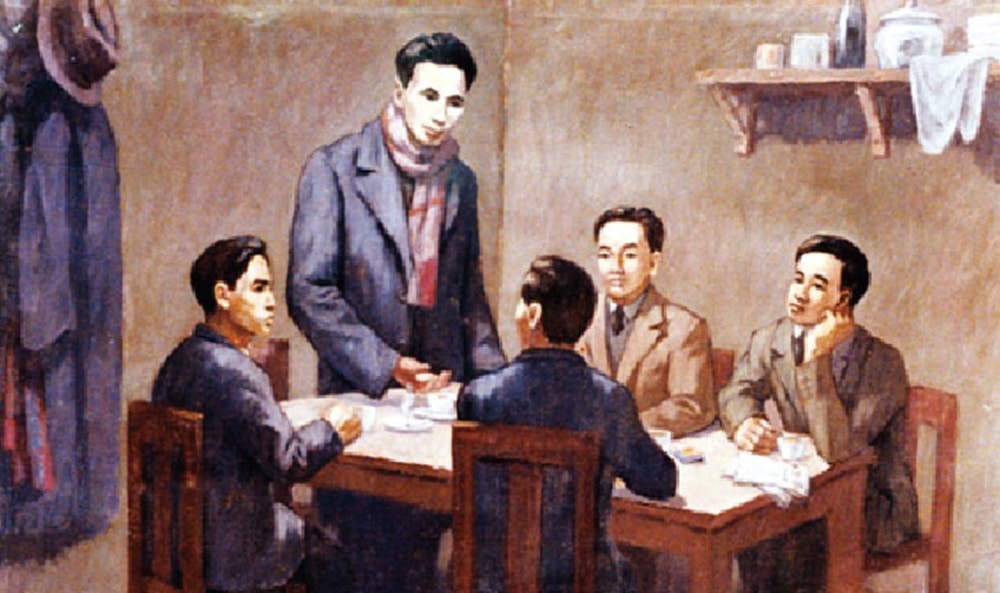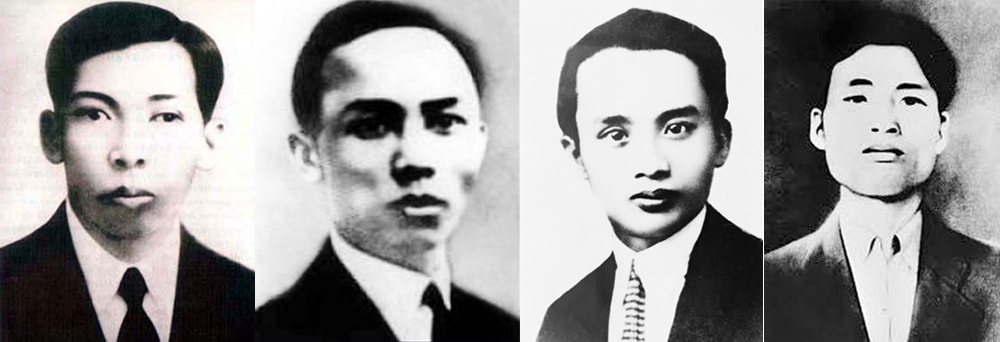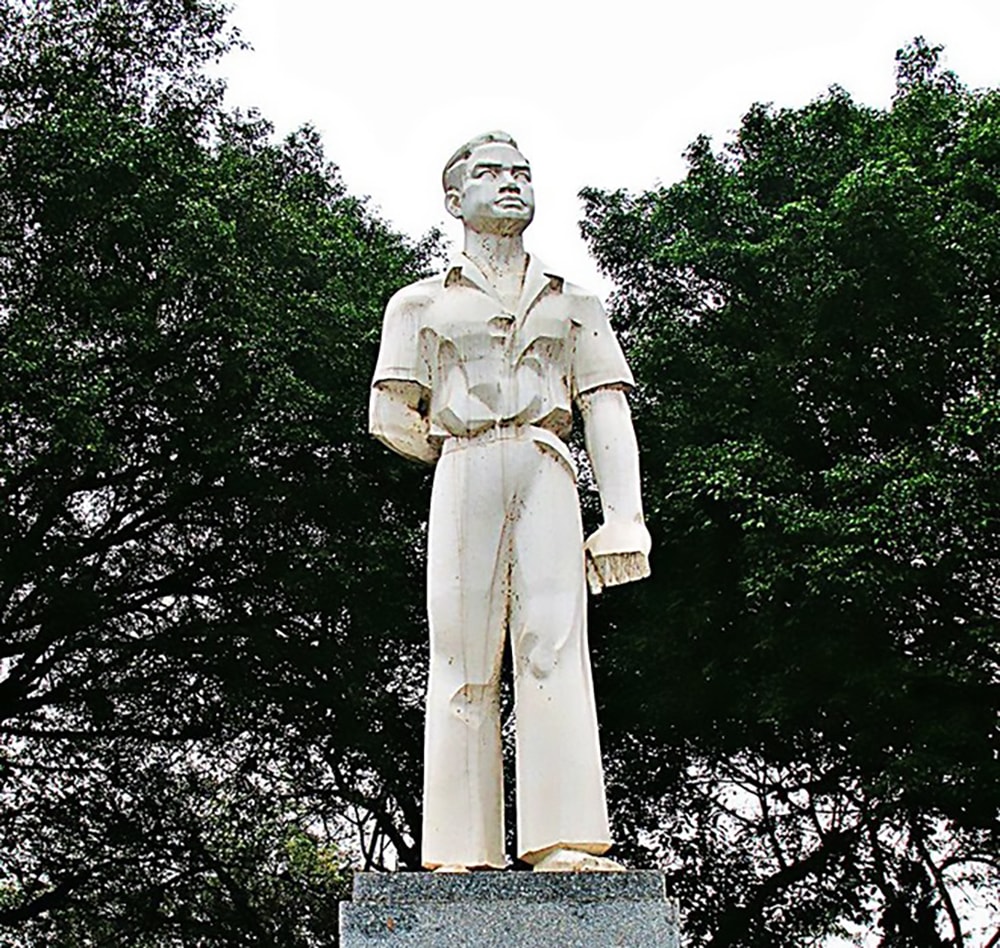Young people of the 20th century: Affirming the role of the young generation
(Baonghean.vn) - The 20th century seems to be a historical period where all the quintessence of the nation and the era met, and from there Vietnam created extremely great values, making the whole world bow down to a small country. Also during this period, the nation gave birth to many excellent and outstanding children - people who contributed to the glory of the country.
>>Young people of the 20th century: Awakening the nation's revolution
Self-responsibility - the desire of new-age youth
By 1929, from the Vietnam Revolutionary Youth Association, two communist organizations had transformed, developed and formed: the Indochina Communist Party (North Vietnam) and the Annam Communist Federation (South Vietnam) alongside the Indochina Communist Federation founded by loyal members of the Tan Viet Party.
On February 3, 1930, under the direction of comrade Nguyen Ai Quoc, these three communist organizations weremerged into the Communist Party of Vietnam.From March 20 to 26, 1931, the ConferenceCentral CommitteeCommunist Party of IndochinaThe second time, it advocated unifying youth organizations into the Indochinese Communist Youth Union.This is the organizationthe strongest, most attractive, most engaging and most devoted of Vietnamese youth in the 20th century.
 |
| From February 3 to 7, 1930, in Kowloon (Hong Kong, China), under the chairmanship of comrade Nguyen Ai Quoc, the Conference merged three Communist organizations in Vietnam, namely the Indochina Communist Party, the Annam Communist Party, and the Indochina Communist Federation, into a single party, the Communist Party of Vietnam. Illustration |
The history of the formation of Party and Youth Union organizations has always been closely linked to the role of young people. Most of the leaders of the three communist organizations that were the predecessors of the Party were young. The founders of the Indochinese Communist Party such as Trinh Dinh Cuu, Nguyen Duc Canh, Tran Van Cung, Nguyen Phong Sac... were only 21 to 27 years old. Similarly, the heads of the Annam Communist Federation were Chau Van Liem, 27 years old, Nguyen Thieu, 26 years old, Nguyen Sy Sach, 22 years old, Tran Nao, 21 years old... In the Indochinese Communist Federation, Ton Quang Phiet was 29 years old, Nguyen Khoa Van, 21 years old, Vo Nguyen Giap, 18 years old, ...
The first leaders of the Communist Party of Vietnam were also very young when they took on the mission. The oldest was comrade Nguyen Ai Quoc, 40 years old; comrade Ho Tung Mau, 31 years old; the rest were all under 30 years old. The comradesTran Phu, Nguyen Van Cu assumed the responsibility of Party General Secretary at the age of 26; comrade Ha Huy Tap at the age of 30; comrade Le Hong Phong at the age of 33; comrade Truong Chinh at the age of 34. Comrade Nguyen Thi Minh Khai held the position of Secretary of Saigon - Cho Lon at the age of 26...
Each person has a different path to the revolution, but the first generation of Party leaders all participated in patriotic activities and were enlightened about revolutionary ideals from a very young age, when they were only eighteen or twenty. Most of them grew up from patriotic youth, student, and pupil movements. They voluntarily joined the movement, the revolutionary organizations, starting from enlightenment about ideals and a sense of responsibility towards the country. Education is an important premise for the first generation of the Party to perceive the truth. That generation mostly came from intellectuals, students, and pupils. From the initial foundation, they both studied and worked to improve their theoretical and practical level, trained their mettle and leadership skills, and confidently acted creatively. This generation of young people has sought, shaped ideals, and established the ideology for the mainstream of the country's movement over the past 100 years.
 |
| The first leaders of the Communist Party of Vietnam: Tran Phu, Le Hong Phong, Ha Huy Tap, Nguyen Van Cu. Photo archive |
When history requires certain major changes, there will appear people with enough intellectual stature and will to shoulder the mission. The early 20th century was a period of transition on a global scale, and for Vietnam, it also entered a new, very new period. The inability of feudal ideology and the scholars implicitly entrusted the younger generation to find a new ideology to shoulder the national mission. With a new foundation of knowledge and ideology - Marxist ideology, the younger generations have promoted the spirit of self-responsibility, risen up and fulfilled their responsibilities excellently, especially in the national democratic revolution and the war of national liberation, defending the Fatherland.
The "death turned into immortality"
First of all, it is necessary to affirm the immeasurable contributions of the young generations to the strong and great movement of the Vietnamese people over the past century. The young generation is the one who creates the most. The young generation is the one who sacrifices the most. The strength to protect the country is the young generation. The driving force for national development is the young generation.
In that century-long march, many young people sacrificed. Many were heroic sacrifices; many were heroic and tragic sacrifices; many deaths became immortal, adding to the patriotic spirit of the Vietnamese people.
The young people were aware and voluntarily devoted themselves, voluntarily sacrificed for a greater cause, for an ideal. Life may be lost but their ideals remain forever. Therefore, their death and sacrifice become immortal.
The Sa Dien bomb by Pham Hong Thai (1924) awakened the patriotism of the Vietnamese people after the failures of theEastern Travel Movement, anti-tax collection in Central Vietnam...
The tragic sacrifice of patriot Nguyen Thai Hoc appealed to the patriotic spirit of the people of the whole country.
The sacrifice of the first leader of the Union - Ly Tu Trong signaled a new struggle of the Vietnamese people and affirmed the role of the young generation.
 |
| Ly Tu Trong Monument. Photo courtesy |
The passing away at the age of 27 of General Secretary Tran Phu with the advice: "Keep up the fighting spirit" and the sacrifice of many other leaders and Party members of the Party such as comrades: Ha Huy Tap, Nguyen Van Cu, Le Hong Phong, Nguyen Phong Sac, Nguyen Duc Canh, Ngo Gia Tu... at a very young age affirmed the steadfastness in ideals and fighting spirit of Vietnamese Communist soldiers.
Leaving Paris (France) to return home with President Ho Chi Minh to join the resistance war against France was not an easy sacrifice of interests for overseas Vietnamese intellectuals. Young female intellectuals such as Duong Xuan Quy, Dang Thuy Tram... volunteered to go to the battlefield against America and heroically sacrificed their lives, affirming the patriotism, sense of responsibility, and ability to contribute of Vietnamese intellectual women.
The sacrifice of martyrs and heroes Tran Van On and Nguyen Thai Binh is a symbol of the fighting spirit of Vietnamese students.
The sacrifices of heroes: Vo Thi Sau, Nguyen Van Troi… on the execution ground, of martyr Le Anh Xuan “on Tan Son Nhat runway” and the smile of Vo Thi Thang before the enemy court are symbols of the indomitable spirit of Vietnamese youth.
Many, many sacrifices have become immortal because each death has meaning, brings useful and good things to the country. The dedication and sacrifice of young people have shaped new qualities of the young generation over the past century that have never existed before. Not only patriotism, will, courage but also the intelligence to choose the path, choose the ideal for themselves and for the whole country.
Youth is not only the main force in the cause of national salvation and defense, but also strives to make the country escape poverty and become rich and strong. Thousands of union members, young people, and young intellectuals have been dedicating their youth so that the Vietnamese mind and soul will never stop shining.
A new era is coming, to be worthy of "being the future of the nation" (Ho Chi Minh), the young generation will certainly know how to renew themselves, form new qualities for themselves, especially creativity, humanitarian spirit and integration ability but still carry within themselves a noble spirit of self-responsibility towards the Fatherland and the People./.

